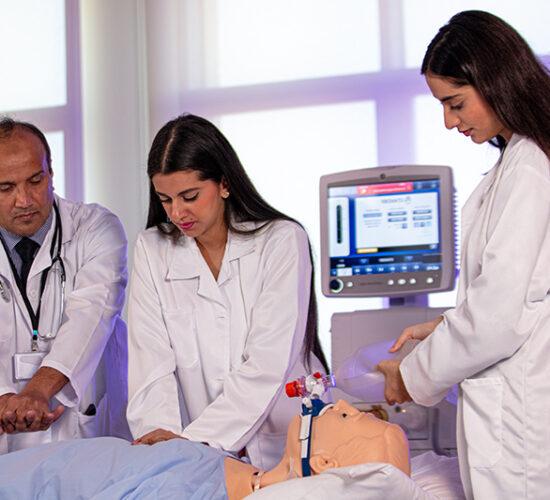| Program Title: | Bachelor of Science in Emergency Medical Care |
|---|---|
| Credit Hours: | 175 |
| Award Granted on Completion: | Bachelor of Science in Emergency Medical Care |
| Delivery Mode: | Face-To-Face |
| Local Accreditation Status: | Commission for Academic Accreditation, UAE (CAA) |
| Language of Study: | English |
| Duration: | 5 Years |
| Campus: | Abu Dhabi |
| Faculty Info: | Faculty of Medical and Health Sciences |
About the Program
The Bachelor of Science in Emergency Medical Care (BSEMC) will prepare you to work in the hospital and healthcare industry as an Advanced Paramedic/Emergency Medical Technologist, providing support and assistance primarily to patients out-of-hospital with medical or trauma emergencies. It will provide in-depth knowledge of emergency medical response, emergency preparedness and management, disaster planning and response, and illness and injury prevention.
Field experience is an integrated component of the curriculum. There are four clinical practice courses in the program as part of clinical exposure and an internship conducted in affiliated hospitals in the UAE. Pre-hospital experience is an essential element of clinical training to enable you to develop and gain the required emergency care skills, reinforce theoretical knowledge through real clinical case scenarios, and develop a high level of professionalism through exposure to healthcare settings.
The program is supported by simulation labs equipped with high-fidelity ICU and trauma manikins, invasive and non-invasive ventilators, and task trainers for various procedures such as airway management, vascular access, etc. As well as clinical knowledge and skills, the program provides the capabilities required to become a researcher and leader in specific areas of interest.
Objectives
Learning Outcomes
After completing the Bachelor of Science in Emergency Medical Care, numerous career opportunities are available to you. Here are some of the areas previous graduates of the program have gone on to work in:
General Requirements (33 CH)
| Course Code | Course Title | Credit Hours | Prerequisite |
|---|---|---|---|
| CIT 100 | Introduction to Information Technology | 3 | None |
| ENG 100 | English I | 3 | None |
|
GEN100/ GEN101 |
Communication Skills in Arabic/ Communication Skills in Arabic for non-Arabic speakers | 3 | None |
| GEN 102 | Islamic Culture (Arabic/English) | 3 | None |
| GEN 105 | Emirates Culture and Society | 3 | None |
| ENG 104 | English II | 3 | ENG 100 |
| GEN 103 | Logic and Critical Thinking | 3 | ENG 100 |
| GEN 201 | Psychology | 3 | ENG 100 |
| GEN 302 | Fundamentals of Innovation and Entrepreneurship | 3 | ENG 100 |
| GEN 304 | Ethics | 3 | ENG 100 |
| MTH 105 | Mathematics and Statistics | 3 | None |
Basic Medical Science Courses- 6 Courses (18 CHs)
| Course Code | Course Title | Credit Hours | Prerequisite |
|---|---|---|---|
| BMS 110 | Medical Terminology | 3 | |
| BMS 121 | Human Anatomy | 3 | BMS 110 |
| BMS 122 | Human Physiology | 3 | BMS 110 |
| BMS 123 | Introduction to Microbiology | 3 | |
| BMS 410 | Pathology | 3 | |
| BMS 411 | General Pharmacology and Toxicology | 3 |
Basic Science Courses- 6 Courses (18 CH)
| Course Code | Course Title | Credit Hours | Prerequisite |
|---|---|---|---|
| BSC 110 | Introduction to Science | 3 | |
| BSC 120 | Physics for Health Sciences | 3 | |
| BSC 121 | Chemistry for Health Sciences | 3 | |
| BSC 122 | Biology for Health Sciences | 3 | |
| BSC 220 | Biostatistics | 3 | |
| BUS 307 | Research Methods | 3 | BSC 220 |
Core Major Courses- 21 Courses (106 CH)
| Course Code | Course Title | Credit Hours | Prerequisite |
|---|---|---|---|
| ECM 210 | Introduction to Paramedicine | 5 | BMS 122 |
| ECM 211 | Patient Assessment | 5 | BMS 122 |
| ECM 220 | Airway and Respiratory Emergencies | 5 | ECM 210 + ECM 211 |
| ECM 221 | Trauma I | 5 | ECM 210 + ECM 211 |
| ECM 310 | Trauma II | 5 | ECM 221 |
| HCM323 | Quality Management in Healthcare | 3 | |
| HCM 212 | Healthcare Delivery System | 3 | |
| ECM 311 | Cardiovascular I | 3 | ECM 220 |
| ECM 312 | Medical Emergencies | 5 | ECM 220 |
| ECM 313 | Paramedic Clinical Practice I | 3 | Level 1-4 Major courses |
| ECM 320 | Obstetrics and Pediatric Emergencies | 5 | ECM 312 |
| ECM 321 | EMC Operations I | 5 | ECM 310 |
| ECM 410 | Special Patient Populations | 5 | ECM 320 |
| ECM 411 | Cardiovascular II | 4 | ECM 311 |
| ECM 420 | EMC Operations II | 5 | ECM 321 |
| ECM 421 | Trauma III | 5 | ECM 310 |
| ECM 422 | Paramedic Clinical Practice II | 3 | Level 1-7 Major courses |
| ECM 510 | Graduation Project | 3 | ECM 312 |
| ECM 511 | Specialized Emergency Care | 5 | ECM 421 |
| ECM 512 | Paramedic Clinical Practice III | 6 | Level 1-8 Major courses |
| ECM 520 | Paramedic Clinical Practice IV | 18 | Level 1-9 Courses |
| Semester 1 | CH | Semester 2 | CH | ||
| YEAR 1 (36 CH) | |||||
|---|---|---|---|---|---|
| ENG 100 | English I | 3 | GEN 105 | Emirates Culture and Society | 3 |
| CIT 100 | Introduction to Information Technology | 3 | BSC 120 | Physics for Health Sciences | 3 |
| MTH 105 | Mathematics & Statistics | 3 | BSC 121 | Chemistry for Health Sciences | 3 |
| BSC 110 | Introduction to Science | 3 | BMS 121 | Human Anatomy | 3 |
|
GEN 100/ GEN 101 |
Communication Skills in Arabic/ Communication Skills in Arabic for non-Arabic speakers | 3 | BMS 122 | Human Physiology | 3 |
| BMS 110 | Medical Terminology | 3 | BSC 122 | Biology for Health Sciences | 3 |
| Total | 18 | Total | 18 | ||
| YEAR 2 (38 CH) | |||||
| BMS 123 | Introduction to Microbiology | 3 | GEN 103 | Logic and Critical Thinking | 3 |
| BMS 411 | General Pharmacology and Toxicology | 3 | BMS 410 | Pathology | 3 |
| ECM 210 | Introduction to Paramedicine | 5 | ECM 220 | Airway and Respiratory Emergencies | 5 |
| ECM 211 | Patient Assessment | 5 | ECM 221 | Trauma I | 5 |
| ENG 104 | English II | 3 | GEN 102 | Islamic Culture (Arabic/English) | 3 |
| Total | 19 | Total | 19 | ||
| YEAR 3 (35 CH) | |||||
| ECM 310 | Trauma II | 5 | BSC 220 | Biostatistics | 3 |
| ECM 311 | Cardiovascular I | 3 | HCM 323 | Quality Management in Healthcare | 3 |
| ECM 312 | Medical Emergencies | 5 | ECM 320 | Obstetrics and Pediatric Emergencies | 5 |
| ECM 313 | Paramedic Clinical Practice 1 | 3 | ECM 321 | EMC Operations I | 5 |
| GEN 201 | Psychology | 3 | |||
| Total | 16 | Total | 19 | ||
| YEAR 4 (31 CH) | |||||
| GEN304 | Ethics | 3 | ECM 420 | EMC Operations II | 5 |
| BUS 307 | Research Methods | 3 | ECM 421 | Trauma III | 5 |
| ECM 410 | Special Patient Populations | 5 | ECM 422 | Paramedic Clinical Practice II | 3 |
| ECM 411 | Cardiovascular II | 4 | GEN 302 | Fundamentals of Innovation Entrepreneurship and Sustainability | 3 |
| Total | 15 | Total | 16 | ||
| YEAR 5 (35 CH) | |||||
| HCM 212 | Healthcare Delivery System | 3 | ECM 520 | Paramedic Clinical Practice IV | 18 |
| ECM 510 | Graduation Project | 3 | |||
| ECM 511 | Specialized Emergency Care | 5 | |||
| ECM 512 | Paramedic Clinical Practice III | 6 | |||
| Total | 17 | Total | 18 | ||
Liwa College offers Bachelor’s programs that are accredited by the Ministry of Education in the UAE and are designed in collaboration with our strategic partners across all industries. Our curricula as well as teaching and learning methods follow a practical approach whereby students get to test theories and develop skills that bridge the gap between academia and the labor market needs.
The College sets out clear and consistent information about its fees and financial policies. The Policy is established in compliance with the requirements of the Commission for Academic Accreditation (CAA) and relevant Directives of the Ministry of Education (MOE).
Join with Many Students Select the program you want to Enquire About!

